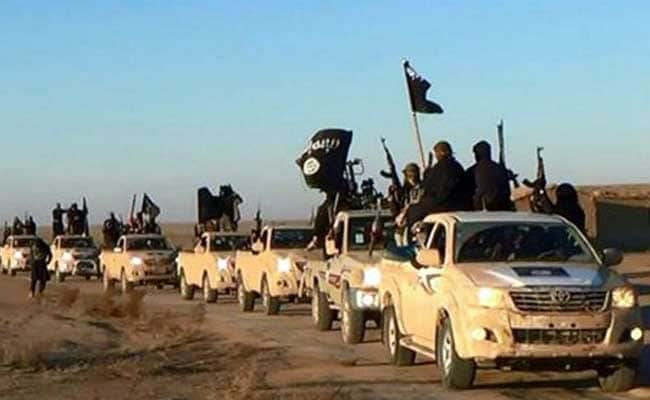
ISIS has been using the chemistry lab in Mosul for the past year to concoct explosive devices and train militants to make them.
Washington:
The dreaded ISIS terror group is making use of Iraq's well-stocked Mosul University chemistry lab to churn out a new generation of deadly explosives, including chemical bombs and suicide vests, according to a media report.
ISIS has been using the chemistry lab in Mosul for the past year to concoct explosive devices and train militants to make them, The Wall Street Journal reported citing US and Iraqi military officials.
General Hatem Magsosi, Iraq's top explosives officer, was quoted as saying that the facilities at the University of Mosul have enhanced ISIS's ability to launch attacks in Iraq and to export bomb-making know-how when its fighters leave the so-called caliphate and return to their home countries.
The weaponry churned out includes peroxide-based chemical bombs and suicide-bomb vests like the ones used in the Brussels attacks and by at least some of the Paris attackers, the report said citing the General, others in the Iraqi military and an official from the US-led coalition fighting ISIS.
Other bombs made include nitrate-based explosives and chemical weapons, Mr Magsosi said.
"The University of Mosul is the best Daesh research center in the world," the General said, using another name for the ISIS.
"Trainees go to Raqqa, (Syria), then to Mosul university to use the existing facilities," he said.
However, the report said the current status of the facility is not clear. The US-led coalition has targeted the campus with airstrikes more than once, most recently on March 19.
When ISIS captured Mosul, Iraq's second-largest city, in the summer of 2014, the university was one of the spoils. The university had a strong reputation around Iraq for its science departments, alumni say.
By March 2015, dozens of ISIS engineers and scientists had set up a research hub in the chemistry lab, which was full of equipment and chemicals, the report said citing two people with knowledge of the university.
Many of the regular staff, including professors specialised in organic, industrial and analytical chemistry, remained in the city at the time, but the new laboratories were staffed by ISIS's own men, it said.
At least since August, dozens of individuals - presumed to be foreigners because they did not speak Iraqi Arabic -- were seen moving through the labs, the two people said.
They said they were told specialised units had been set up there for chemical explosives and weapons research as well as suicide-bomb construction.
ISIS has been using the chemistry lab in Mosul for the past year to concoct explosive devices and train militants to make them, The Wall Street Journal reported citing US and Iraqi military officials.
General Hatem Magsosi, Iraq's top explosives officer, was quoted as saying that the facilities at the University of Mosul have enhanced ISIS's ability to launch attacks in Iraq and to export bomb-making know-how when its fighters leave the so-called caliphate and return to their home countries.
The weaponry churned out includes peroxide-based chemical bombs and suicide-bomb vests like the ones used in the Brussels attacks and by at least some of the Paris attackers, the report said citing the General, others in the Iraqi military and an official from the US-led coalition fighting ISIS.
Other bombs made include nitrate-based explosives and chemical weapons, Mr Magsosi said.
"The University of Mosul is the best Daesh research center in the world," the General said, using another name for the ISIS.
"Trainees go to Raqqa, (Syria), then to Mosul university to use the existing facilities," he said.
However, the report said the current status of the facility is not clear. The US-led coalition has targeted the campus with airstrikes more than once, most recently on March 19.
When ISIS captured Mosul, Iraq's second-largest city, in the summer of 2014, the university was one of the spoils. The university had a strong reputation around Iraq for its science departments, alumni say.
By March 2015, dozens of ISIS engineers and scientists had set up a research hub in the chemistry lab, which was full of equipment and chemicals, the report said citing two people with knowledge of the university.
Many of the regular staff, including professors specialised in organic, industrial and analytical chemistry, remained in the city at the time, but the new laboratories were staffed by ISIS's own men, it said.
At least since August, dozens of individuals - presumed to be foreigners because they did not speak Iraqi Arabic -- were seen moving through the labs, the two people said.
They said they were told specialised units had been set up there for chemical explosives and weapons research as well as suicide-bomb construction.
Track Latest News Live on NDTV.com and get news updates from India and around the world

